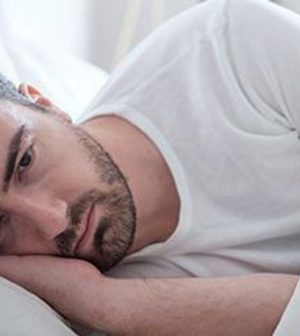- The Best Time of Day to Drink Bone Broth to Maximize Health Benefits
- 8 Ways to Increase Dopamine Naturally
- 7 Best Breads for Maintaining Stable Blood Sugar
- Gelatin vs. Collagen: Which is Best for Skin, Nails, and Joints?
- The Long-Term Effects of Daily Turmeric Supplements on Liver Health
- Could Your Grocery Store Meat Be Causing Recurring UTIs?
- Are You Making This Expensive Thermostat Error This Winter?
- Recognizing the Signs of Hypothyroidism
- 10 Strategies to Overcome Insomnia
- Could Artificial Sweeteners Be Aging the Brain Faster?
Poor Sleep After Head Injury Could Point to Dementia Risk

Sleep disorders may increase the odds for dementia in survivors of traumatic brain injury, new research suggests.
The study included nearly 713,000 patients who were free of dementia when they were treated for traumatic brain injury (TBI) between 2003 and 2013. The severity of their brain injuries varied, and nearly six in 10 were men. Their median age was 44, meaning half were older, half younger.
Over a median follow-up of 52 months, about 33,000 of these patients developed dementia. Those diagnosed with a sleep disorder were 25% more likely to develop dementia, the study found. The results were similar for men and women — a sleep disorder was associated with a 26% increase in men’s dementia risk and a 23% increase among women.
“Our study’s novelty is its confirmation of sleep disorders’ association with incident dementia in both male and female patients, independently of other known dementia risks,” said lead author Dr. Tatyana Mollayeva, an associate director of the Acquired Brain Injury Research Lab at the University of Toronto, in Canada.
“We are also the first to report on the risks that sleep disorders and other factors pose separately for male and female patients with TBI,” she added in an American Academy of Sleep Medicine news release.
Mollayeva said the findings suggest a need for greater awareness of sleep disorder risk in TBI patients.
In the study, the researchers controlled for age, sex, income level, injury severity and other health problems that could affect the results.
A study abstract was recently published in an online supplement of the journal Sleep. The findings are also scheduled to be presented Sunday during a virtual meeting of the Associated Professional Sleep Societies.
More information
The American Academy of Family Physicians has more on dementia.
SOURCE: American Academy of Sleep Medicine, news release, June 8, 2021
Source: HealthDay
Copyright © 2026 HealthDay. All rights reserved.










